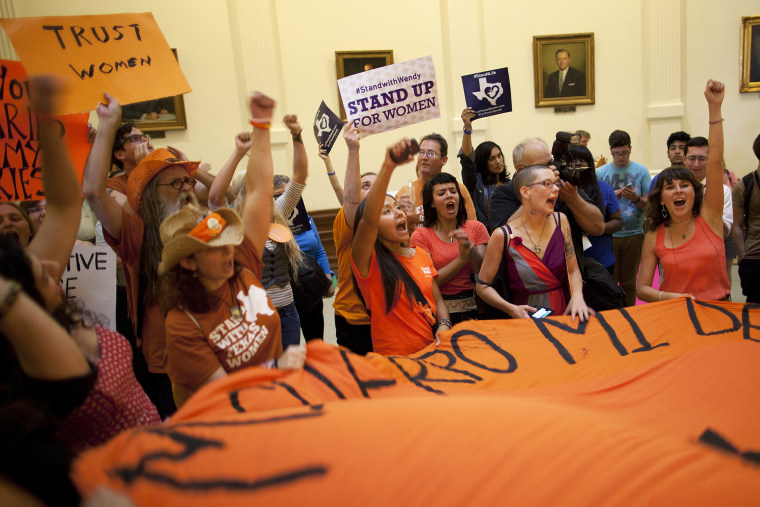Less than a week after the Fifth Circuit Court of Appeals upheld two provisions of Texas’s law restricting abortions – including the regulation that has closed a third of the state’s clinics – attorneys for two of the closed clinics are trying a new tactic. They have filed a new federal lawsuit on behalf of Whole Woman’s Health in McAllen and Reproductive Health Services in El Paso, saying the requirement that abortion providers have admitting privileges at local hospitals is unconstitutional as applied to them.
“We filed this lawsuit to stop the second-largest state in the nation from plunging millions of women back into the darkness and grave danger of illegal abortion that Roe v. Wade was supposed to end," said Nancy Northup, the CEO of the Center for Reproductive Rights.
Whole Woman's Health closed its clinic in McAllen, in the Rio Grande Valley, after hospitals denied their providers admitting privileges. Paired with another clinic nearby that closed for the same reason, the effect is for legal abortion in the region to be inaccessible without driving hundreds of miles. The abortion provider in El Paso was granted temporary admitting privileges that are about to expire. According to Northup, both clinics have seen 30,000 patients, and in that time, only two have required transfers to the hospital -- which doesn't actually require that the doctor performing the abortion have admitting privileges.
The lawsuit also asks the Court to block the implementation of expansive building requirements for clinics, expected to go into effect in September and leave only a half-dozen abortion providers open. Those requirements, said Amy Hagstrom Miller, CEO of Whole Woman's Health, have cost as much as $7 million to build, in one of the poorest regions in the entire county. "It’s nearly impossible to build a multimillion dollar facility when you don't have patients who are able to pay and who have insurance," Hagstrom Miller said.
The earlier challenge to the law said two provisions of the omnibus law -- the admitting privileges requirement and the one making medication abortion nearly impossible to obtain -- were unconstitutional on their face, meaning in every possible instance. The district court agreed, but last week a three-judge panel of Republican-appointed judges claimed the provisions didn't violate Supreme Court precedent. The clinics who filed the suit, who are represented by Planned Parenthood, the ACLU, and the Center for Reproductive Rights, haven't yet said whether they'll appeal that case. If they do, it will make it even likelier that the Supreme Court will take up such laws, particularly since the Attorney General of Wisconsin has asked it to hear a similar case where the Seventh Circuit came to an opposite conclusion.
